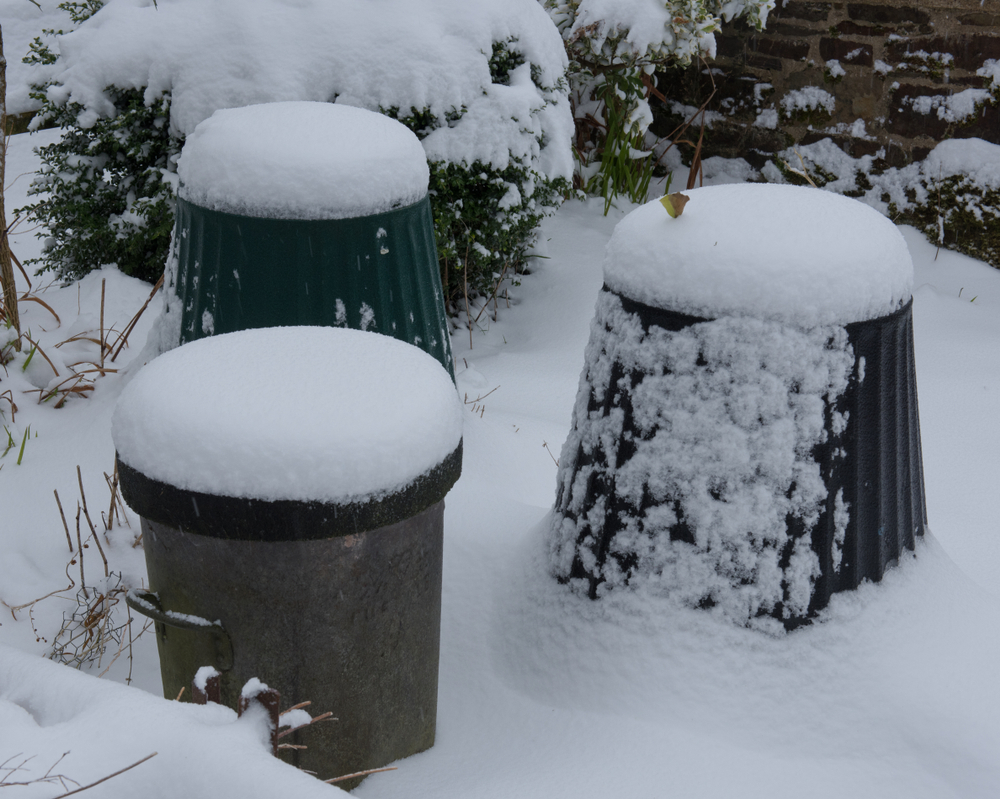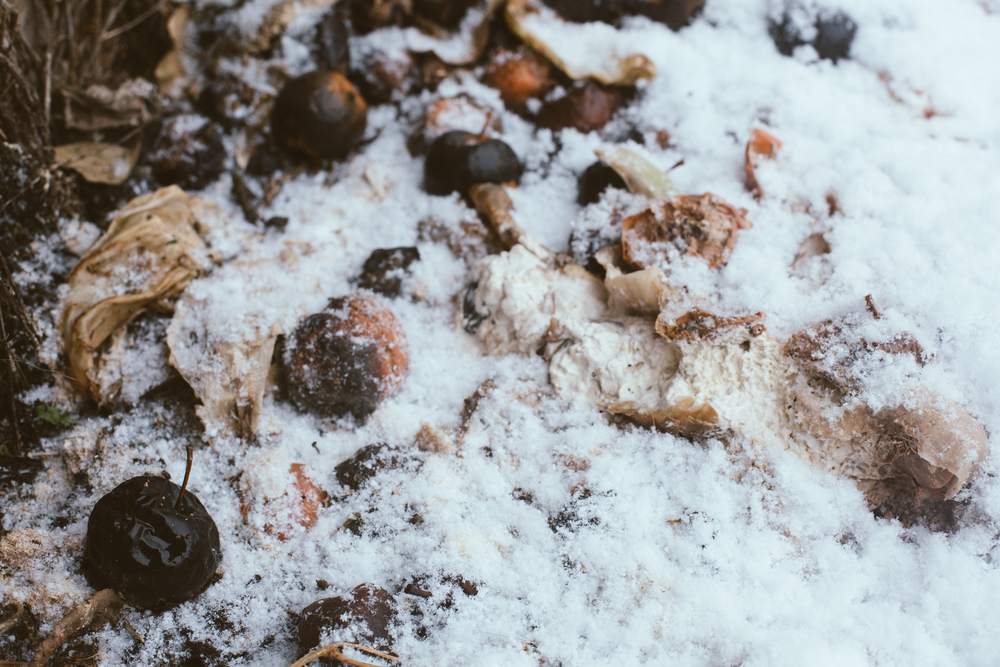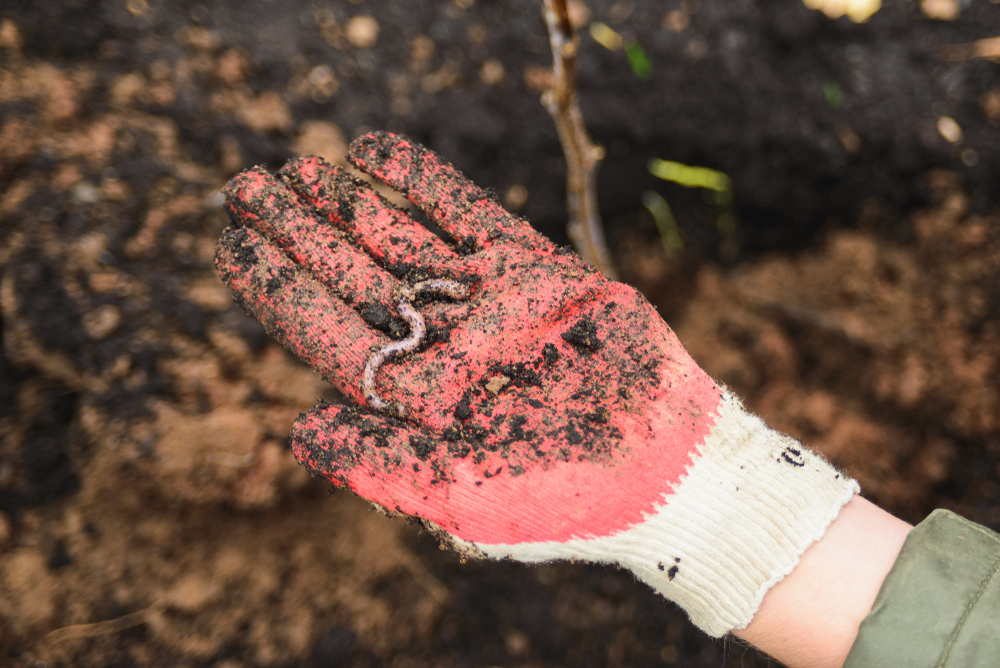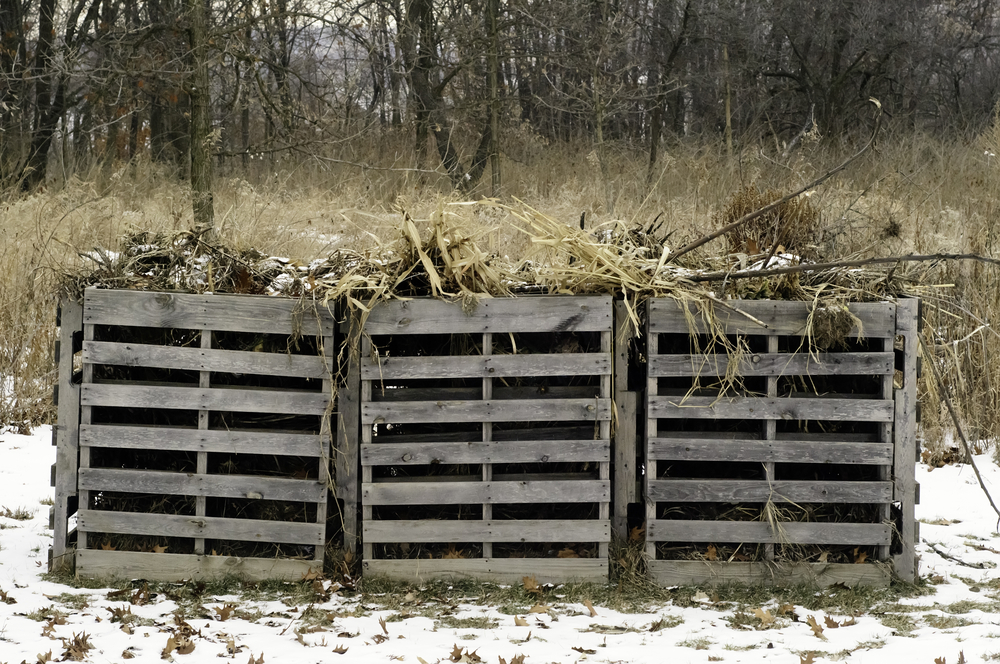During the winter season, it’s not just the garden plants and vegetables that need to be protected from the cold and frost. Compost also requires certain precautions for successful wintering. Here are several essential tips for continuing to compost in winter and the main mistakes to avoid.
If in winter, life underground seems to slow down, the micro-organisms present in your outdoor compost are not yet at a standstill. The same goes for the worms in the worm composters, which do not stop their activities, but nevertheless require protection from the cold if necessary.
How to store compost in winter?
At first glance, ‘compost’ and ‘winter’ do not seem to be able to agree, since the very principle of compost relies on heat for optimal degradation of materials. The winter season can then hinder this natural process, causing some problems with decomposition. Problems which it is however possible to overcome with certain precautions which will not prevent composting to take longer in winter. But, rest assured: life underground will not stop and it will resume with a vengeance as soon as temperatures rise! In the meantime, here’s what to do…
The consequences of the cold on the compost bin
In winter, activity in the center of your compost bin should remain satisfactory, despite the cold. On the other hand, your compost will probably be more inactive above. The risk is then that the peelings and other plant waste deposited will be seized by the cold, which will further delay their decomposition.
In absolute terms, apart from idling your compost, the consequences of the cold are less. But when the good weather returns, a strong smell of decomposition could then escape from your compost bin. So remember to dump dead matter on top of the compost pile, which will reduce these fumes.
In case of negative temperatures, you can also surround your compost bin with an insulating layer such as a winter veil, burlap or other material which will promote a higher temperature in its center. Protection that must be removed as soon as frost episodes have passed.

Compost in the vegetable garden in winter: think about mulching
Gardeners who are used to composting in their vegetable garden in winter can continue their activity, even when it is cold. This surface composting can, however, be helped with straws or dead leaves which will protect this small ecosystem. Do not hesitate to lay out a thick layer of mulch so as to form a sufficiently insulating thickness, promoting good compost activity.
Monitor your vegetable garden carefullybecause surface compost is likely to attract foxes, cats or other animals looking for rodents, which like to hide under this type of mulch…
Also read – Compost: these leaves not to put and why

Whatever your composting method, in winter, we advise you to if possible, favor the intake of rapidly decomposing foods.
Vermicomposter: helping worms cope with the cold of winter
As for the worm composters housing eisenia type worms, which are responsible for ingesting and digesting organic matter to transform them into compost, the latter can also continue their small activities in winter. If their ideal operating temperature is between 15 and 25°Cthis does not mean that they stop all work when the thermometer drops too low. More than the cold, it is the heat that is dangerous for your worm composter, because the worms need a sufficient level of humidity (around 80%).
Be careful, however, the more temperatures drop, the more the worms will go into hibernation. Their activity will therefore slow down, as will their needs. This is why in winter, outdoor vermicomposting must be carried out less frequently than the rest of the year. Less productive than indoors, your worm composter must therefore be put to rest during the winter season, but do not stop adding anything, because some worms could still be looking for something to eat.

If, however, the thermometer drops below 0 too frequently, you can protect your worm composter using a small greenhousea winter veil or even by installing it if possible in the garage or in a corner sheltered from cold drafts. However, we do not recommend placing it in direct sunlight.
Successfully composting in winter: common mistakes to avoid
One of the most common mistakes in winter is to think that the cold stops all activity in compost bins and outdoor worm composters.
1 – Stop feeding the compost in winter
In winter, if compost activity is greatly reduced by coldthe microorganisms are still at work. So don’t stop feeding your compost bin or worm composter, but prefer to do it in a reduced manner, with faster decomposing waste. Avoid brown waste, which is tougher, and favor vegetable peelings in particular.
2 – Stir the compost when it is cold
Another mistake often made wrongly during the winter: mixing the compost thinking of promoting its activity. Gold, by mixing your compost, the cold material comes into contact with sufficiently warm areaswhich risks killing the microorganisms still existing in the center. An action which can also prevent the birth of new micro-organisms and therefore nullify the efforts of nature.
Prefer to wait until sunny days return to stir your compost using a fork. Once the winter season has passed, you can also ventilate your compost bin by leaving its cover open.
3 – Place your composter at the bottom of the garden in winter
Last mistake which harms the activity of the compost in winter: place the bin or the worm composter at the bottom of the garden, in a place exposed to the winds. For fear of odors, many gardeners choose to install their compost a good distance from their home, but when it rains or is too cold, it can become a constraint to carry your organic waste there. Bring your compost closer to your home will also allow you to shelter it more, by choosing a place more protected from bad weather.
So you will have understood, composting in winter remains entirely possibleas long as we accept that nature slows down its activities, to better resume them in good weather!

Article updated
consoGlobe also recommends…
Source: www.consoglobe.com


